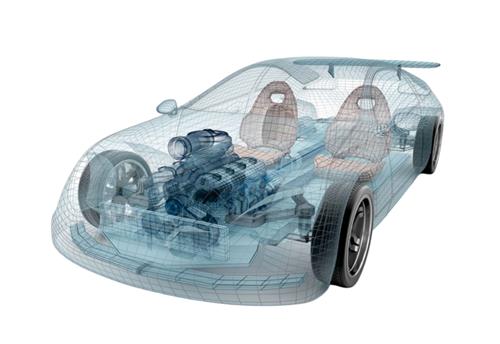Brexit already damaging automotive industry, says UK auto body president
Society of Motor Manufacturers and Traders president calls for quick action to secure tariff-free deal.
The negative effects of Brexit are already being felt and emphasise the need for faster-paced government negotiations, Society of Motor Manufacturers & Tradeers (SMMT) president Tony Walker has said. SMMT is the apex bodt that supports and promotes the interests of the UK automotive industry at home and abroad.
During his speech at the 101st annual SMMT dinner, Walker said Britain’s car industry requires hard answers and certainty from the government, in order to prevent trends of falling consumer confidence and slowing car sales from reaching a critical point.
“We [the industry] will never stop striving to be competitive,” he said, “but we ask government to help provide the conditions in which we can compete. Like every industry, we need certainty now.”
Brexit has been directly linked to falling demand for new cars in the UK, which decreased by 2.9% in October alone and has seen predictions for the nation’s car production output fall by 700,000 units for 2017 to 1.73 million. Exports of British-built cars, by comparison, grew by 5% last month, ensuring that the nation’s overall output actually grew by 3.5% across the four months.
Walker revealed that 1100 lorries supply parts from Europe to the car industry per day, with the majority arriving without any customs checks. HM Revenue and Customs figures show that these contribute £35 million worth of components to car plants a day, with almost 80% of the cars they help to make being exported – most to Europe.
These close ties with Europe for supply and export, Walker explained, emphasise the importance of securing a tariff-free deal with the continent. If no deal is made, Britain’s departure from the European Union on 29 March 2019 could leave the industry faced with at least £4.5 billion of World Trade Organisation tariffs per year.
“We have delivered an export-led renaissance,” said Walker. “But we are not complacent. A hard Brexit would undermine all that we have collectively achieved. It is a real threat – a hurdle we cannot ignore.”
Alongside his calls for quicker negotiations, Walker also asked the government to understand the importance for continued development of combustion engines in order to up the rate of progress in green technology. In response to the UK’s recent announcement of a ban on pure petrol and diesel cars from 2040, he said “the internal combustion engine is not dead – it is the path to a cleaner and greener future.
“Banning diesel and petrol cars might be a sound bite that works but it’s not a policy that works. If you ban them you disrupt the new car market and you hamper investment in the electric, emission-free vehicles of tomorrow. You set the future back.”
SMMT CEO Mike Hawes took things further in his speech, proclaiming that the government's movements could be catastrophic. He said: "UK Automotive is great at technology. And we are damn good at internal combustion engines in particular – just look at Formula One for proof. Yet we seem to be hell bent on destroying that reputation.
"We tell the world we want to ban petrol and diesel cars by 2040. We introduce taxes, charges and budget measures which ignore technological development, which undermine our industrial capability and which demonise one technology, diesel, despite the benefits it delivers consumers. Customers are not moving straight from diesel to electric. They're moving to petrol or staying put in their older cars. So we're seeing a falling market, declining revenues, rising costs, rising CO2. This is not a policy without consequences."
Hawes said that the UK Government needs "a dose of reality". He said "the industry is agile, it can adapt. But it needs certainty, sensible timescales and supportive conditions".
Chancellor Phillip Hammond’s recent diesel tax is the latest in a line of government moves that have concerned the automotive industry. Hammond revealed that a tax hike will be applied to new diesel cars that don’t conform to next-generation emissions testing standards, which themselves won’t come into force until 2020.
SMMT CEO Mike Hawes stated that the new law, which has been introduced to reduce the number of diesel vehicles on Britain’s roads, would hinder “the ability of the industry and government to achieve CO2 limits”. He said that targeting the newest and lowest polluting models wasn’t the most effective way of reducing the ever-growing air quality problem.
RELATED ARTICLES
Marelli Talbros Chassis Systems wins Rs 1,000 crore business from European OEM
The order, to be executed over an eight-year period, is for the supply suspension arms tailored for both conventional in...
Kia launches customised NBA display themes for North American market
Display Themes is a customised service that supports a personalised vehicle experience, allowing users to customise the ...
Antolin and VIA Optronics unveil versatile vehicle cockpit concept
The Sunrise vehicle concept cockpit, which is engineered for seamless transitions between manual and autonomous driving ...





 29 Nov 2017
29 Nov 2017
 3616 Views
3616 Views





 Autocar Pro News Desk
Autocar Pro News Desk




